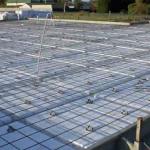
The Tender Process
What Do You Need to Be Aware of In the Tender Process?
Every tender has clauses about additional costs, these are known as ‘Provisional sums’. Your builder will estimate costs for certain items, but at times, the cost may come in higher than expected and if the cost comes in under, then you need to ensure that the saving is credited to you.
The most common additional costs that you may be liable for are additional site costs, such as;
- Rock excavation
- Additional piers
- Engineering requirements
- Bushfire regulations, BASIX,
- Retaining walls and so on and so forth.
Budgeting for a Contingency
In short, this means that new home builders do not have a firm price and don’t really know what the final bill will be at the start of the project. In most commercial projects it is normal to allow a contingency amount when budgeting, this is the buffer for design changes and extras that inevitably pop up when building. Contingency amounts vary but generally start at 10% of the contract sum. I.e. Budget $110 000 for a contract sum of $100 000.
Budgeting for a contingency amount will take the stress out of dealing with these inevitable extra costs and allow you to relax a little knowing that these costs happen on most building projects.




It is easy to overlook the tender process when you are all excited to start on your new home development journey. Thus, you need to ensure that all these pointers have been taken into consideration so as not to cause trouble for you along the way. You wouldn't want to settle down at the new place with logistics issues cropping up after.